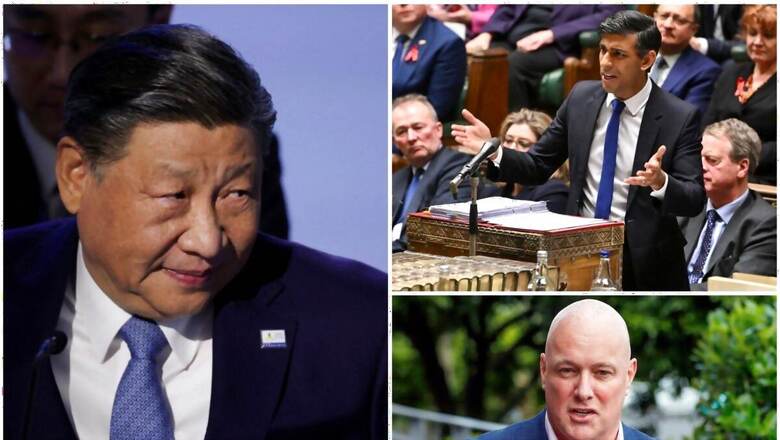
views
The UK accused China on Monday of targeting “democratic institutions and parliamentarians” in two cyber campaigns. The UK government also summoned the Chinese envoy and unveiled new sanctions against Beijing.
The Rishi Sunak government said that China-backed groups targeted the UK Electoral Commission, UK parliamentary accounts and lawmakers critical of China through cyber attacks in 2021 and 2022.
“Chinese state-affiliated actors were responsible for two malicious cyber campaigns targeting both our democratic institutions and parliamentarians,” Deputy Prime Minister Oliver Dowden told members of parliament.
He said that both campaigns, while a “real and serious threat”, were ultimately thwarted. Dowden said an unnamed “Chinese state-affiliated entity” likely “compromised” UK Electoral Commission systems, but he insisted election security was not affected.
“It will not impact how people register, vote or otherwise participate in democratic processes,” he said.
Dowden said that the UK parliament’s cybersecurity measures blocked a second campaign against lawmakers. The Chinese ambassador to London has been summoned “to account for China’s conduct”, Dowden said.
The UK government hit two individuals and one company linked to the Chinese-backed group suspected of orchestrating the campaign, APT31, with sanctions as a response.
Conservative MP Iain Duncan Smith, one of the targeted lawmakers, said Beijing should be labelled a threat to the UK.
British Prime Minister Rishi Sunak reiterated that China is “behaving in an increasingly assertive way abroad” and is “the greatest state-based threat to our economic security.”
“It’s right that we take measures to protect ourselves, which is what we are doing,” he said, without providing details.
Meanwhile, the New Zealand government on Tuesday also accused a Chinese state-sponsored group for an attack on the country’s Parliamentary Counsel Office.
The country’s counter-espionage agency in Wellington said a state-backed group known as “APT40” compromised computers linked to the Parliamentary Counsel Office, which drafts and publishes laws.
New Zealand Prime Minister Christopher Luxon told reporters that it was a “big step” to blame the cyber attack on China, his country’s biggest trade partner.
China Says Accusations ‘Malicious Slander’
China hit back by saying that the claims coming out of London and Wellington are “malicious slander” and “groundless”.
The Chinese embassy in Britain hit back, calling the claim “completely unfounded” and accusing London of “malicious slander”.
Blaming China for the attacks “is completely unfounded and constitutes malicious slander”, it said in a statement released on its website, adding it had made a complaint to the UK side.
“The UK’s hype-up of the so-called ‘Chinese cyber attacks’ without basis and the announcement of sanctions is outright political manipulation and malicious slander.”
The Chinese embassy in Wellington termed the allegations that it carried out a malicious cyber attack against New Zealand’s parliament as “groundless”.
In recent years, Western nations have become increasingly willing to expose foreign cyber operations, and to point fingers at foreign governments — most notably China, Russia, North Korea and Iran. Authorities in Washington recently said they had charged seven Chinese nationals in connection with a 14-year campaign against critics of Beijing.
China has “never encouraged, supported or condoned cyberattacks”, the embassy statement said.













Comments
0 comment